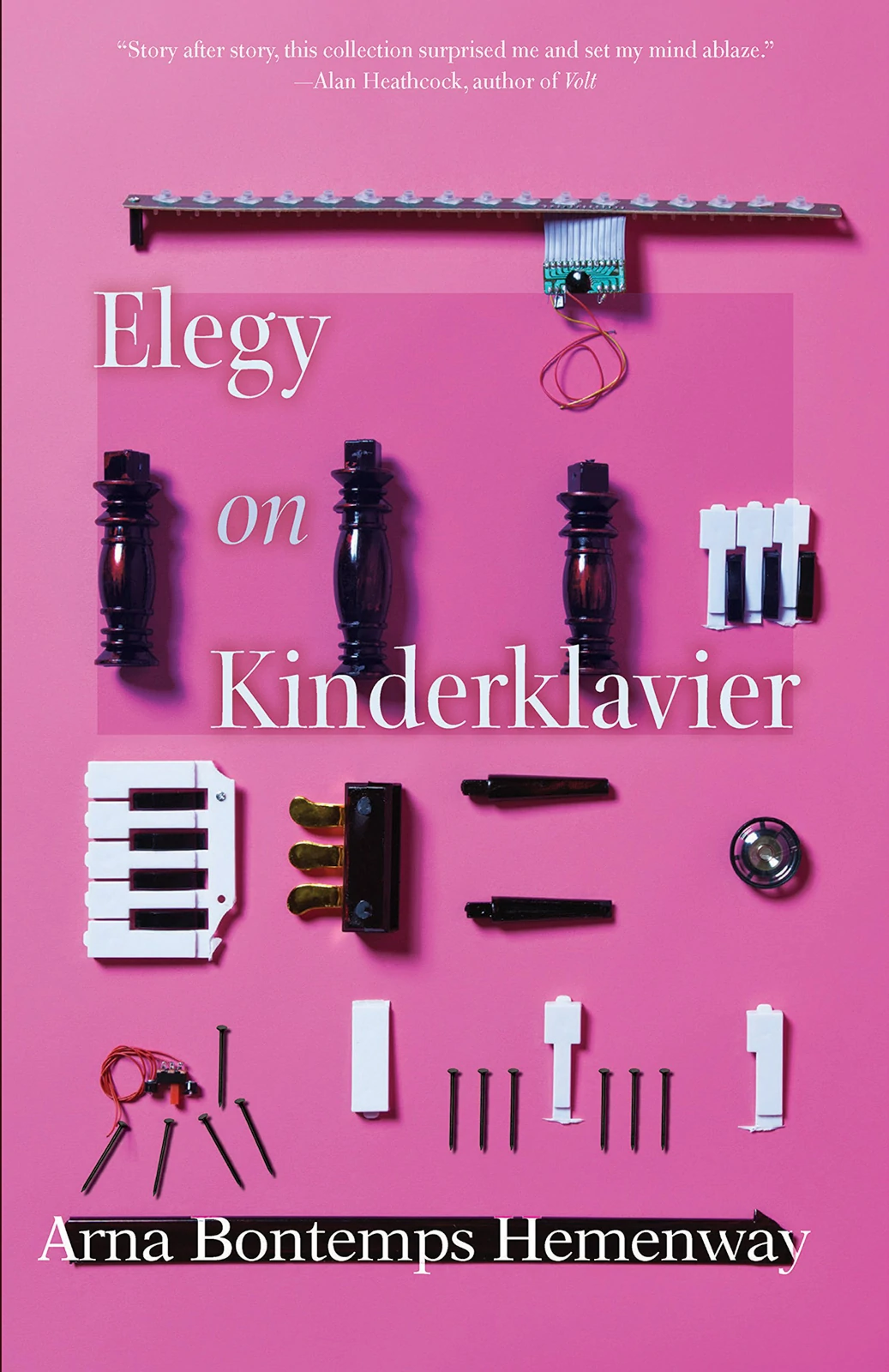
A Review of Elegy on Kinderklavier by Arna Bontemps Hemenway
Words By Colin Griffith
Writing about loss can be difficult. It permeates every facet of the life it surrounds, descending like a translucent but leaden shroud. People experience it in ways myriad and unique, but despite its shifting nature, loss is one of the very few experiences that is truly universal. It ranges across nations and continents, striking between and within cultures to the heart of everyday existence. We feel loss at the death of a loved one, the disintegration of a relationship, the fracturing of a culture. Though it is natural and even common, the experience of loss is at its core isolating, a razor capable of severing even the strongest bonds.
Few works have tackled the inherent shapelessness of loss like Elegy on Kinderklavier, the new short story collection from author Arna Bontemps Hemenway. A confident writer with a gift for twisting form and language, Hemenway has created a set of narratives that function as both experience and narrative. Restless and unfettered, the collection wanders between settings with grace and dexterity, finding inspiration in the clouded fields of rural America, the alleys of a war-torn Iraq, even the sun-blighted plains of a foreign planet.
This sense of displacement and movement also lends to the great variety of structure and form within the collection. These stories are human, but hardly traditional. Hemenway’s dissection of style and structure provides a fascinating and unique take on the short story format. Even something so fundamental as time is but fodder for Hemenway’s unrelenting sense of experimentation. One piece, “The Fugue,” follows a veteran’s struggle with post-traumatic stress disorder as he floats in and out of time, sliding into consciousness just long enough to provide a glimpse into a life that has been utterly shattered by the experience of war. Another, “The IED,” heightens the focus on time down to a microsecond’s edge as a soldier brings his foot, inexorably and eternally, upon a hidden explosive in an Iraqi city. The moment, far from the transiency of reality, expands to encompass the soldier’s entire life, blending reality and memory in a way yet untried by most writers.
Formal experimentation aside, it is Hemenway’s unrelenting focus on the reality of human experience that drives Elegy on Kinderklavier. Though war and loss are not uncommon subjects in today’s age, Hemenway’s sometimes oblique, always exploratory approach seeks new angles from which to observe the puzzle of human emotion. His style is often challenging and requires a great degree of attention and flexibility from his reader. At first glance, a clear end point is rarely in sight. But search carefully, and the thread always appears. Follow it, and the maze might guide you to places the written word has so rarely uncovered.